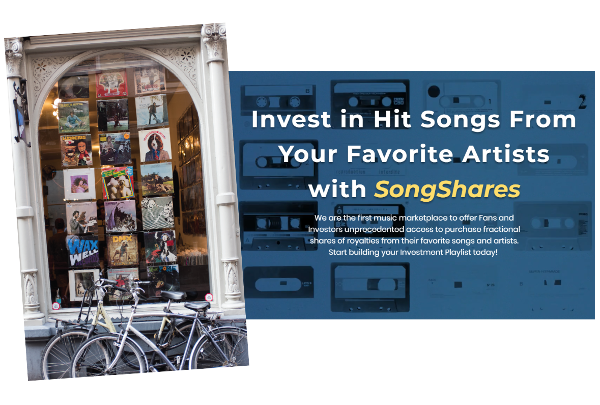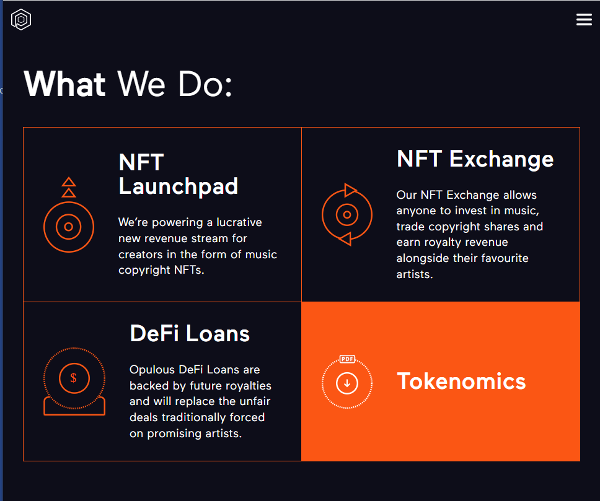We’re Not in Kansas Anymore

Strictly speaking, music is a stream of ever-changing fluctuations in pressure that are literally airy. Some pieces of music could even be described as superlunary. Nevertheless, we have found ways to brutally commercialize it. For well over a hundred years, companies have churned out packaged music on a wide variety of discs and tapes containing waveforms, and more recently as media and files containing binary digits.
The newest iteration in music merchandising, and one that I have not quite wrapped my mind around, is music sold as NFTs. You probably already know what NFTs are, but I had to consult Wikipedia. An NFT is a unique and non-interchangeable unit of data stored on a digital ledger. The authenticity of an NFT is verified with a blockchain and it’s often purchased using cryptocurrency. NFTs might diversely present as an image, a document, a video, a baseball card, and, yes, as a music recording.
An ordinary digital audio file is just a bunch of bits and can be duplicated ad infinitum. Because of its ubiquity, it inherently lacks value. But an NFT music file is authenticated to be absolutely unique. This ability of the NFT to make a digital asset scarce is what potentially makes it so valuable. By selling a music file as an NFT, its uniqueness elevates it over any ordinary music file that can be indistinguishably copied.
NFTs can be sold or traded by both the creator and the customer. Like most assets, they can have value and the value depends, as you might expect, on the NFT’s cache and rarity. A LeBron James NFT NBA card sold for $208,000 because he is a sports legend and the card was unique. In contrast, if I issued a bunch of NFT videos of me singing “Happy Birthday,” they would be worth diddly. Or quite possibly, less than diddly. Mr. James can make money by bottling and selling his sweat so of course his NFT would be valuable. But does the NFT market generally amount to any serious coin? Judge for yourself. According to Wikipedia, sales of NFTs exceeded $2 billion during the first quarter of 2021.
NFTs are a financial phenomenon, but they have their fair share of detractors. As with any new frontier, there are hucksters aplenty. Also, the validation of blockchain transactions requires a plethora of computers consuming a plethora of electricity. Thus, NFTs are sometimes criticized because of their carbon footprint — incidentally, something they share with physical music recordings.
Are NFTs the future of music merchandising? Maybe. In many ways, an NFT is an answer to musicians’ prayers. They can sell music NFTs directly to listeners with no record label middleman and net 100 percent of the proceeds. Moreover, musicians retain rights to their work, and can receive a royalty each time an NFT is sold to another buyer. Finally, as with any collectible, the value of the NFT could increase (or decrease) over time. A music NFT is thus a product that connects musicians with both listeners and investors.

Sites like OpenSea, Rarible, and Nifty Gateway let you buy and sell NFTs. So far, they mainly offer works of art. Sites like Opulous and SongVest let fans purchase music NFTs that include rights to a portion of future music royalties. While that might seem overly generous on the part of the musician, it not only encourages you to buy the NFT, but also incentivizes you to promote the music (you social-media influencer, you) to drive up the royalty payments. In theory, you could profit from owning the NFT.
So far, music NFTs are an inconsequential part of music sales, pioneered mainly by small bands. But big names are dipping their toes in the water. For example, the super-popular South Korean K-pop band, BTS, plans to offer NFT trading cards that play music. Other big-name musicians are sure to follow.
My neighborhood record store is now a marijuana dispensary (but very possibly with the same owner). I religiously padlock my bike. The last time I paid cash for anything was in 2018. Bygone days. So, in the interest of furthering the future, I am ready to buy my first music NFT. I’ll let you know how it goes as soon as I figure out how to put the needle in the groove.
Ken C. Pohlmann is an electrical engineer specializing in audio topics as a consultant and writer. He is Professor Emeritus at the University of Miami.
























































